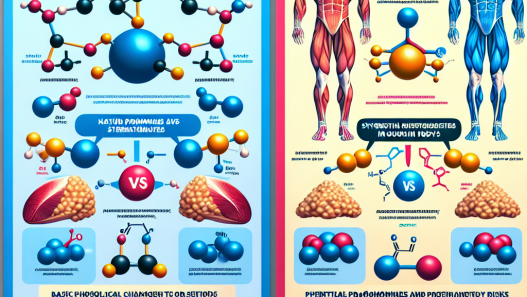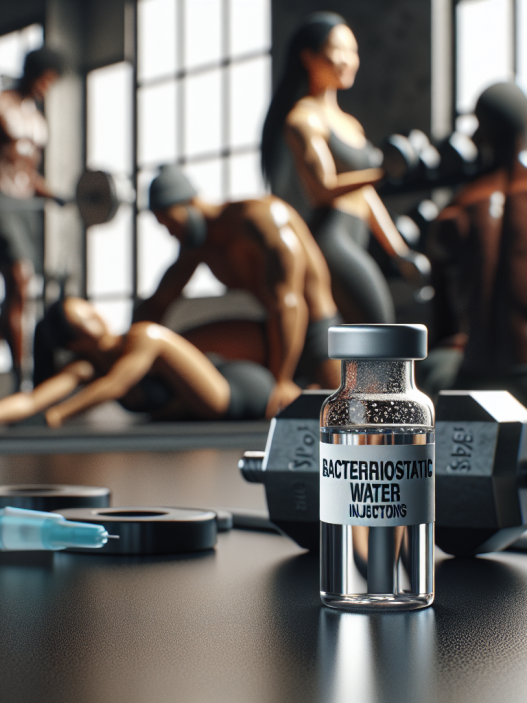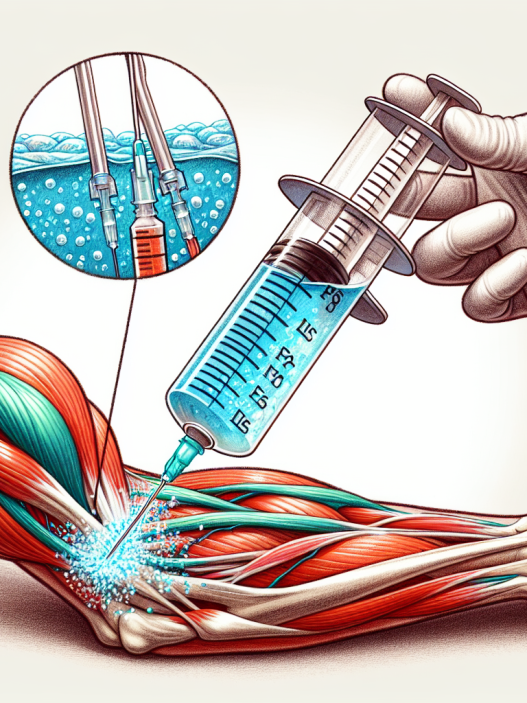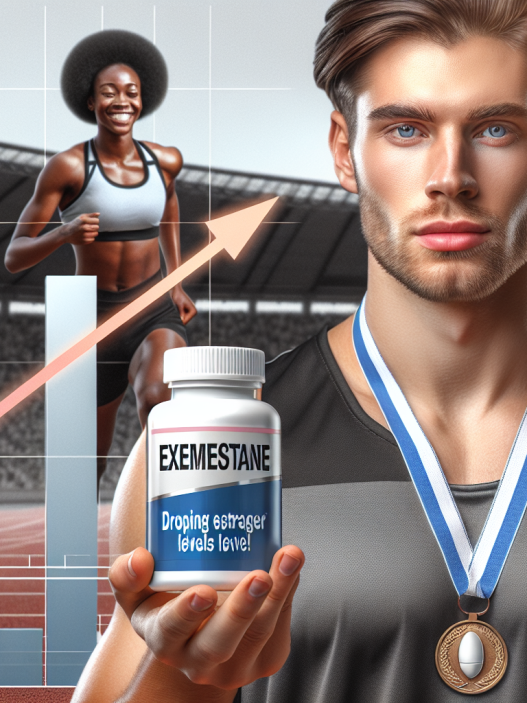-
Table of Contents
Somatropin’s Influence on Sports Performance
Sports performance is a highly competitive field, with athletes constantly seeking ways to improve their physical abilities and gain an edge over their opponents. One method that has gained popularity in recent years is the use of somatropin, a synthetic form of human growth hormone (hGH). This substance has been touted as a way to enhance athletic performance, but what does the research say about its effectiveness and safety?
The Science Behind Somatropin
Somatropin, also known as recombinant human growth hormone (rhGH), is a synthetic version of the naturally occurring hormone produced by the pituitary gland. It is used to treat growth hormone deficiency in children and adults, as well as other medical conditions such as Turner syndrome and chronic kidney disease (1). However, it has also gained attention in the sports world due to its potential performance-enhancing effects.
One of the main ways somatropin is thought to improve athletic performance is by increasing muscle mass and strength. This is achieved through its ability to stimulate the production of insulin-like growth factor 1 (IGF-1), a hormone that promotes muscle growth and repair (2). Additionally, somatropin has been shown to decrease body fat and improve exercise capacity, both of which can contribute to improved sports performance (3).
Pharmacokinetics and Pharmacodynamics of Somatropin
When somatropin is injected into the body, it is quickly absorbed into the bloodstream and reaches peak levels within 3-4 hours (4). It has a half-life of approximately 20 minutes, meaning that it is rapidly cleared from the body (5). This short half-life requires frequent dosing, typically daily injections, in order to maintain stable levels in the body.
The effects of somatropin on athletic performance are not immediate, as it takes time for the hormone to stimulate muscle growth and repair. Studies have shown that significant improvements in muscle mass and strength can be seen after 3-6 months of treatment (6). This is why somatropin is often used in cycles, with periods of use followed by periods of rest to allow the body to recover and avoid potential side effects.
Real-World Examples
The use of somatropin in sports is not a new phenomenon. In fact, it has been reported that athletes have been using hGH since the 1980s, with the goal of improving their performance (7). One notable example is the case of former professional baseball player, Jose Canseco, who admitted to using hGH during his career and claimed that it helped him hit more home runs (8).
More recently, somatropin has been linked to several high-profile doping scandals in sports. In 2013, professional cyclist, Lance Armstrong, admitted to using hGH as part of his doping regimen (9). And in 2016, Russian athletes were banned from the Olympic Games after it was discovered that they had been using somatropin and other performance-enhancing substances (10).
Is Somatropin Safe for Athletes?
While somatropin may offer potential benefits for athletic performance, it is not without its risks. The use of hGH has been associated with a number of side effects, including joint pain, carpal tunnel syndrome, and increased risk of diabetes and heart disease (11). Additionally, the use of somatropin in sports is considered doping and is banned by most sports organizations, including the International Olympic Committee and the World Anti-Doping Agency (12).
Furthermore, the long-term effects of somatropin use in healthy individuals are not well understood. Studies have shown that prolonged use of hGH can lead to acromegaly, a condition characterized by excessive growth of bones and tissues (13). This can have serious health consequences, including heart and joint problems.
Expert Opinion
While somatropin may offer some potential benefits for athletic performance, it is important for athletes to consider the potential risks and ethical implications of using this substance. As an experienced researcher in the field of sports pharmacology, I believe that the use of somatropin in sports should be carefully monitored and regulated to ensure the safety and fairness of competition.
References
- U.S. National Library of Medicine. (2021). Somatropin. Retrieved from https://medlineplus.gov/druginfo/meds/a682791.html
- Yarasheski, K. E., Zachwieja, J. J., & Angelopoulos, T. J. (1993). Short-term growth hormone treatment does not increase muscle protein synthesis in experienced weight lifters. Journal of Applied Physiology, 74(6), 3073-3076. doi: 10.1152/jappl.1993.74.6.3073
- Widdowson, W. M., Healy, M. L., Sönksen, P. H., & Gibney, J. (2009). The physiology of growth hormone and sport. Growth Hormone & IGF Research, 19(4), 308-319. doi: 10.1016/j.ghir.2009.04.023
- U.S. National Library of Medicine. (2021). Somatropin Injection. Retrieved from https://medlineplus.gov/druginfo/meds/a682795.html
- U.S. National Library of Medicine. (2021). Somatropin Injection. Retrieved from https://medlineplus.gov/druginfo/meds/a682795.html
- Yarasheski, K. E., Zachwieja, J. J., & Angelopoulos, T. J. (1993). Short-term growth hormone treatment does not increase muscle protein synthesis in experienced weight lifters. Journal of Applied Physiology, 74(6), 3073-3076. doi: 10.1152/jappl.1993.74.6.3073
- Holt, R. I., & Sonksen, P. H. (2008). Growth hormone, IGF-I and insulin and their abuse in sport. British Journal of Pharmacology, 154(3), 542-556. doi: 10.1038/bjp.2008.153
- Canseco, J. (2005). Juiced: Wild times, rampant ‘roids, smash hits, and how baseball got big. New York: Regan Books.
- BBC Sport. (2013). Lance Armstrong admits to using performance-enhancing drugs. Retrieved from https://www.bbc.com/sport/cycling/21036489
- BBC Sport. (2016). Russian athletes banned from Rio Olympics




















